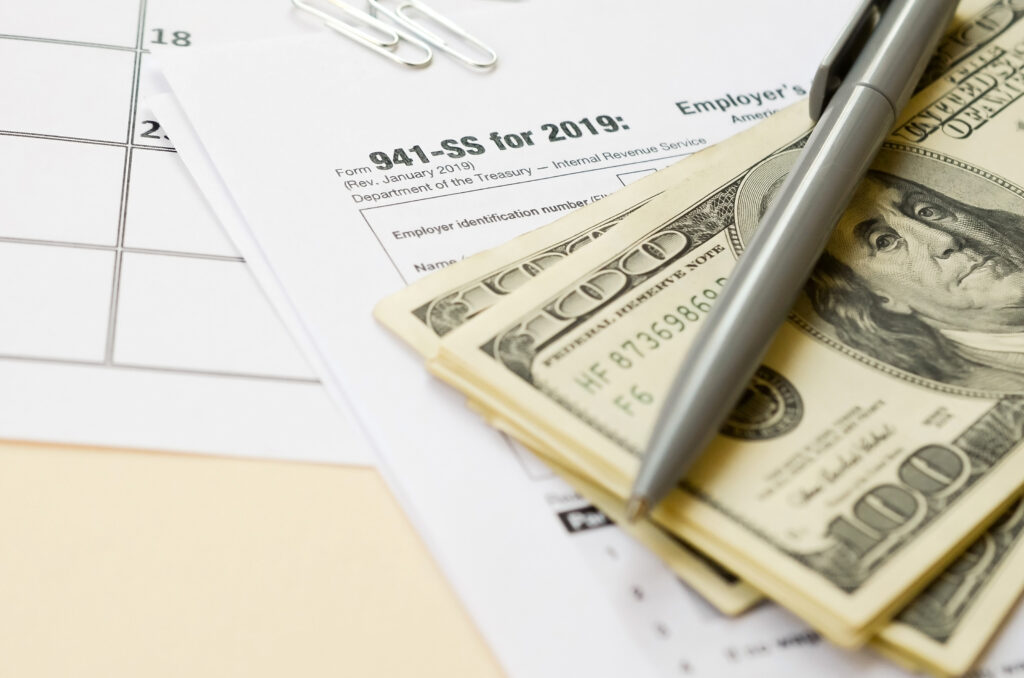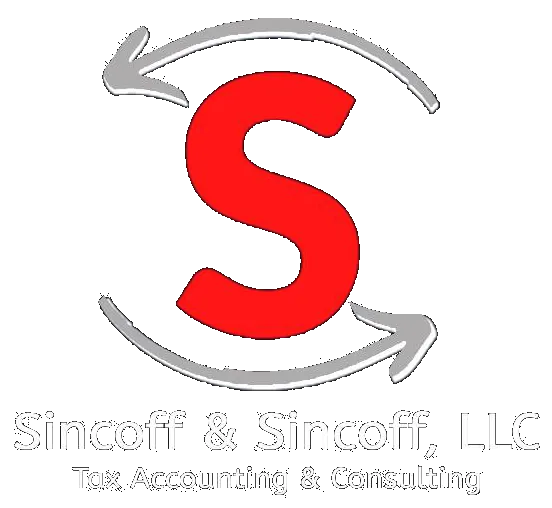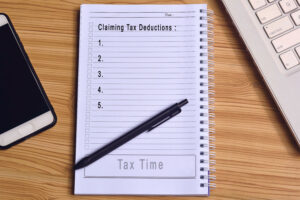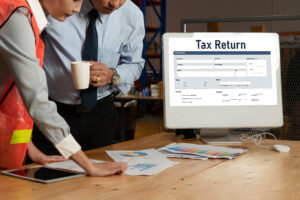My first year freelancing, I made about $60K. Thought I was doing great until April rolled around and I owed $11,000. Had maybe $2,000 in my account. That was a rough week.
Turns out, when you’re self-employed, Uncle Sam wants his money spread throughout the year, not in one giant lump sum. It would’ve been nice if someone had mentioned that before I quit my day job.
The Basics Nobody Explained to Me
Here’s what I wish someone had told me: when you work for yourself, you’re basically running a tiny business. The government sees you as both the boss and the worker, which means you pay both sides of the tax equation.
My old job at the warehouse? They pulled money from every paycheck for taxes. Did it automatically. I never thought about it. Come tax season, I usually get $500-$800 back and go out to dinner.

How Often Do You Pay Your Taxes?
Now I’m responsible for setting aside that money myself. The IRS wants it four times a year – mid-April, mid-June, mid-September, and mid-January of the next year. Yeah, those aren’t actual quarters. Makes zero sense, but whatever.
Skip one of those payments or pay too little? They tack on fees. And not small ones either.
Figuring Out What You Actually Owe
Second year, I was self-employed, and I thought I was being smart. Looked at my first-year taxes, divided by four, and sent those payments in. Felt pretty good about myself.
Then my business doubled. Made way more than I expected. Come April, I owed another $8,000 on top of what I’d already paid. No penalty since I’d matched my previous year, but man, that hurt.
Now I do it differently. Every month I take 30% of what I made and move it to a separate savings account. Don’t touch it. That covers federal, state, and gives me a buffer for when business is good.
Some months I make $3,000, some months $8,000. Doesn’t matter – 30% goes straight into the tax account. When the quarterly payment is due, the money’s sitting there waiting.
New Jersey Makes Everything More Complicated
Federal taxes are straightforward enough. Then you remember you live in New Jersey and they want their cut too.
Separate payments. A separate website that looks like it was designed in 2003. Separate calculations. My buddy who moved to Florida just laughs at me now because they don’t have state income tax.
First year I only paid federal quarterlies. Completely forgot about the state. Got a letter from NJ Treasury in October asking where their money was, plus $200 in penalties.
Now I pay both on the same day. Federal goes through their website, state goes through NJ’s portal, done. Set calendar alerts on my phone a week before each deadline.
When I Broke Down and Hired Help
Year three, I finally called an accountant. My sister-in-law recommended this guy in Red Bank who works with a bunch of freelancers and small business people around Monmouth County, NJ.
Costs me $650 a year. He handles everything – tells me what to pay each quarter, does my annual return, and answers panicked texts when I’m not sure if something is deductible.
First meeting, he looked at my previous returns and just shook his head. Apparently, I’d been missing a ton of stuff. Home office deduction, vehicle expenses, business supplies. Even my internet bill is partially deductible.
That first year he did my taxes, I got $3,200 back from the feds and $800 from the state. His fee basically paid for itself twice over.
The Penalty Thing Is No Joke
My cousin Tommy runs a landscaping business. Does pretty well, makes good money. For three years, he just didn’t pay quarterlies at all. Figured he’d deal with it in April.
Last year, he finally filed everything. Between federal and state penalties, he owed an extra $4,200 on top of his regular tax bill. Almost had to take out a loan to cover it.
The IRS charges around 8% yearly on underpayments, plus interest that compounds. New Jersey has their own rate and calculation method. It stacks up faster than you’d think.
I’ve been hit with penalties twice now. Once for $380 when I completely spaced on a June payment. Once for $150 when I undercalculated what I owed. Both times sucked.
Now I slightly overpay each quarter. Rather get money back in April than owe more.
Stuff You Can Write Off That I Didn’t Know About
My accountant goes through my bank statements every year, looking for deductions. Found things I never would’ve thought counted.
That software subscription for project management? Deductible. The new laptop I bought? Deductible. Miles driven to meet clients? Deductible at like 67 cents per mile.
I rent a two-bedroom apartment and use the second bedroom only for work. That’s 40% of my rent, electric, heat, and internet – all deductible as home office expenses. That alone saves me probably $4,000 a year in taxes.
Even my cell phone bill is partially deductible since I use it for business calls. My accountant figured 60% business use, so 60% of the bill counts.
The health insurance deduction is massive, too. When you’re self-employed, your premiums come right off the top of your taxable income. That was worth about $6,000 in deductions last year.
How I Actually Make the Payments Now
Both the federal and state have online systems. Federal one works pretty well, actually. You enter your info, link your bank account, and schedule the payment. Takes maybe ten minutes.
New Jersey’s system is more annoying. Have to log in through their business portal, navigate through a bunch of menus, and find the right form. But once you’ve done it a few times, you get used to it.
I pay both on the same day, usually the 10th of the month, it’s due. That gives me a buffer in case something goes wrong with the website or my bank.
Some people mail checks. I did that exactly once and the IRS claimed they never got it. Had to prove I sent it, took three months to straighten out. Never again.
What If You’re Just Starting Out
If this is your first year being self-employed, you might not need to pay quarterlies yet. Depends on how much you make and whether you had taxes withheld from a job earlier in the year.
But don’t assume you’re off the hook. Calculate what you’re likely to owe and start setting money aside anyway. Even if you don’t have to pay quarterly this year, you will next year.
I meet people all the time at networking events in Monmouth County, NJ, who have just gone full-time freelance or started their own business. First thing I tell them: talk to a CPA now, not in April when you’re screwed.
Setting up a system from day one is way easier than trying to fix things after you’ve already messed up.
Finding Someone Who Actually Gets It
Not every accountant understands self-employed taxes. Some are used to doing returns for people with regular jobs. That’s different.
You want someone who works with freelancers, contractors, and small business owners. People who deal with irregular income and business deductions.
I asked around at a local business meetup. Got three recommendations, called all of them, went with the one who answered my questions without making me feel stupid.
Cost varies. I’ve heard anywhere from $400 to $1,200 a year, depending on how complex your situation is. Mine is pretty straightforward so I’m on the lower end.
Even if you’re just making $30K or $40K a year self-employed, it’s worth talking to someone. The deductions they find usually cover their fee.
My Current System
First of every month, I log into my business checking account and see what came in during the previous month. Take 30% of that total and transfer it to my tax savings account.
The week before each quarterly deadline, I email my accountant with my year-to-date income numbers. He calculates what I should pay and sends me the amounts for federal and state.
I log into both payment systems, schedule the payments for the deadline date, screenshot the confirmations, and file them away.
Takes maybe 30 minutes total. The peace of mind is worth way more than that.
It Gets Easier
First year being self-employed and dealing with quarterly taxes is rough. You’re learning everything from scratch, making mistakes, and stressing about whether you’re doing it right.
By year three or four, it’s just part of the routine. Every quarter, pay your taxes. Same as paying rent or your phone bill.
The key is just not ignoring it. Set the money aside as you make it. Pay on time. Get help if you need it. The penalties for screwing this up are real and they’re expensive.
Being your own boss is great. Paying quarterly taxes isn’t great, but it’s manageable once you’ve got a system down. Just don’t do what I did and wing it for two years. Learn from my expensive mistakes.





